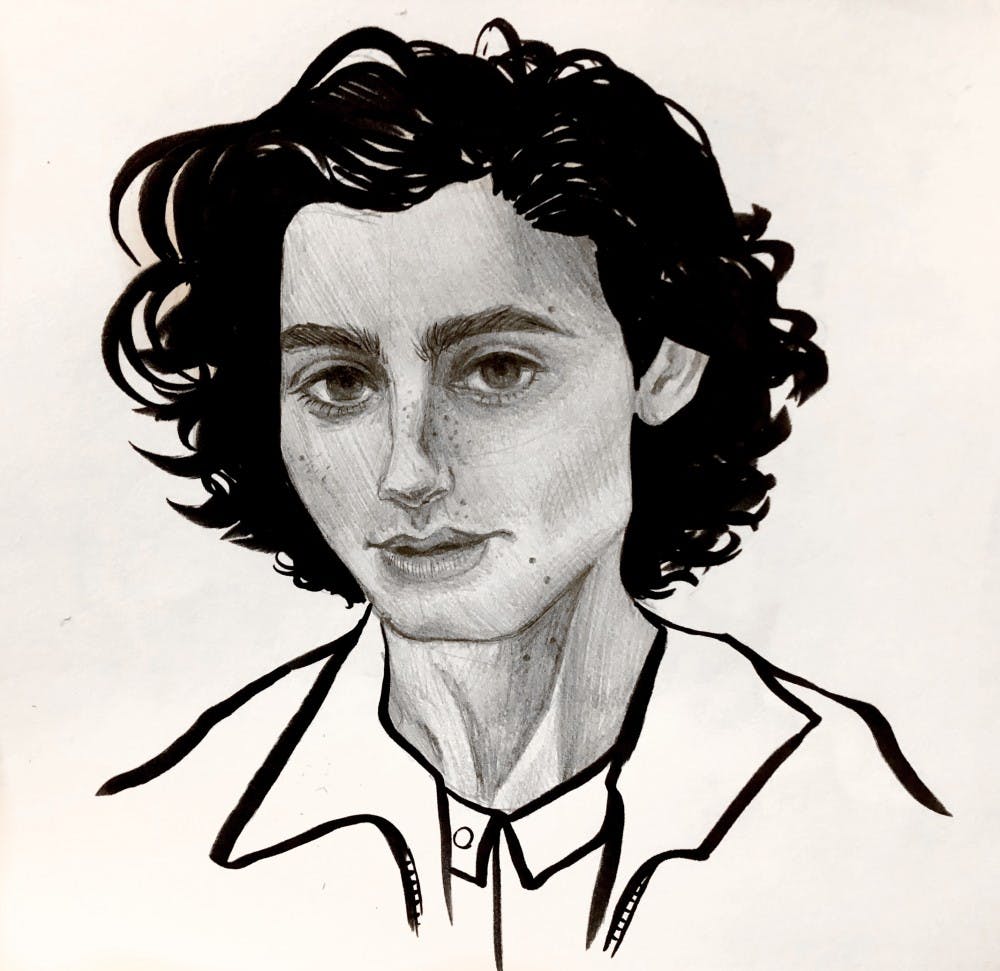Last week, the trailer for The King was released. Unsurprisingly, Twitter was ablaze—screen–caps of the trailer, memes, and excited chatter about the upcoming movie filled everyone’s feed in unrelenting waves. However, none of the discussion was about the plot, characters, or setting of the film. It was about one thing: Timothée Chalamet.
The 23–year–old was catapulted to worldwide attention in 2017 with the romance film Call Me By Your Name, which was nominated for four Oscars, including Best Picture. It was Chalamet’s pale pout and mysterious charm that amazed filmgoers from around the world and garnered him a Best Actor nomination. He and Armie Hammer were gawked at during their press junkets, even leading to people theorizing about a romance between them in real life.
There are multiple factors that contributed to Chalamet's immediate stardom. First, CMBYN is a gay love story, directed by a gay man, that focuses on a very specific coming–of–age romance. These stories are, quite frankly, much rarer than heterosexual romances in film, so when a good one comes around, it tends to get more attention.
Equally important in Chalamet’s rise to fame is his relative youth—he plays a 17–year–old in CMBYN, and in real life he's just 23. What makes actors popular today is how easily they can connect with their audiences. Chalamet's Twitter is cute and relatable, he talks like any other 23–year–old, and his use of emojis is certainly adept. He speaks the same language as those who love him, making him all the easier to connect with.
Of course, he also has natural talent. It was not just people on social media who adored him in CMBYN, considering that he has an Oscar nomination to show for it, too.
We see celebrities become popular for possessing these similar combinations of relatability, youth, and talent all the time—look simply to the enormous followings of YouTubers. Among actors, similar examples of the trope emerge: Tom Holland, Harry Styles, Cole Sprouse. The commonalities between the actors in this list are obvious—they're all young, white boys under the age of 30.
Chalamet is also a young, white boy, but this is not to say that I blame his fans for liking him. He’s a great actor, and generally likable. However, it still comes as no surprise that it's this particular subset of person that amasses the most fame.
Chalamet’s fame is not problematic in and of itself, but the attention he garners may become an issue for the movies that he stars in. Last month, for example, the trailer for Little Women came out, starring talents such as Meryl Streep, Laura Dern, and Florence Pugh. Many discussions around this movie were not, as one might expect, about the titular women. They were about Chalamet and his character’s romance with Saoirse Ronan. How is it possible that the hype around a movie with women in the title is primarily directed towards a male love interest?
Chalamet is the primary engine driving online conversation about The King, too. Unfortunately, there is little talk of the film itself. It was not until researching for this article that I figured out what, exactly, The King was even about: it's the story of Henry V, a loose film adaptation of many plays from Shakespeare’s Henriad.
Fans of Chalamet are not ruining film or film analysis. It's just a bit predictable that the person getting this insane attention is a young, white man. It's also a little upsetting that the media frenzy he incites draws attention away from other co–stars. Hopefully, though, Chalamet can be appreciated alongside the work that he stars in, instead of eclipsing it. Ideally, The King can have value beyond Chalamet’s presence in it (and the details of his haircut). Fans on social media and journalists alike need to learn how to spotlight an actor without forgetting what's giving them a platform—the film itself.

